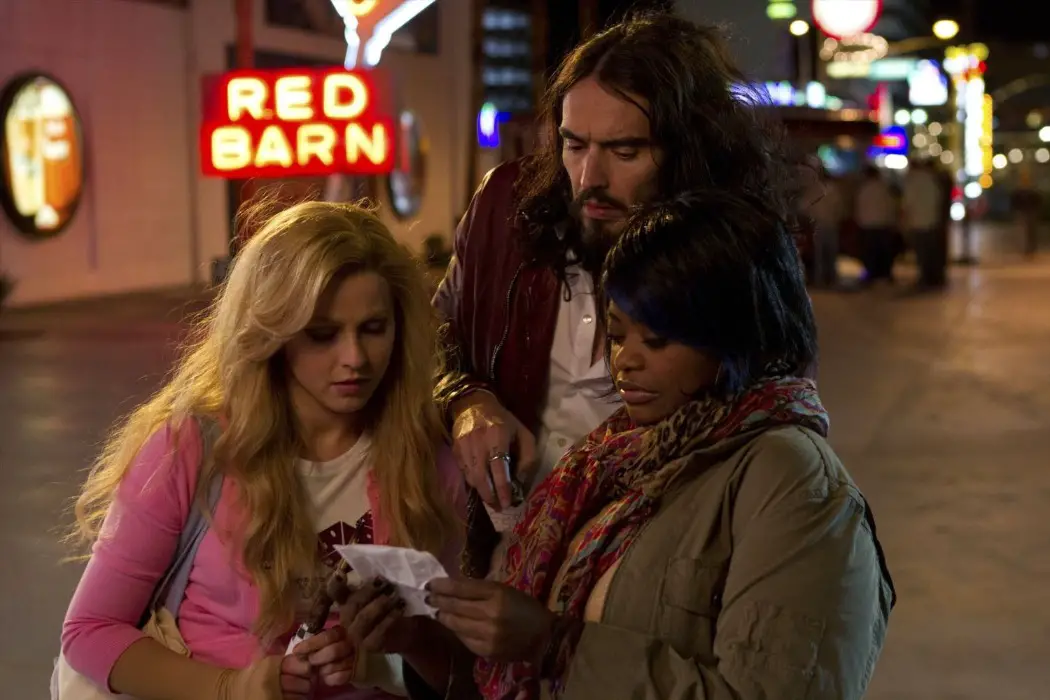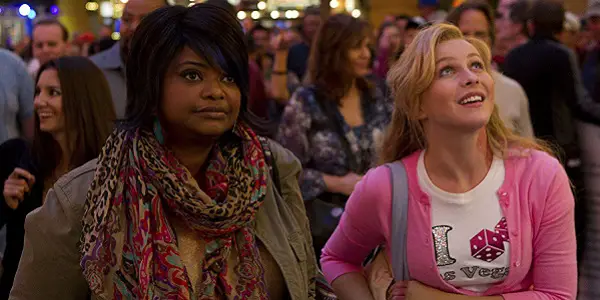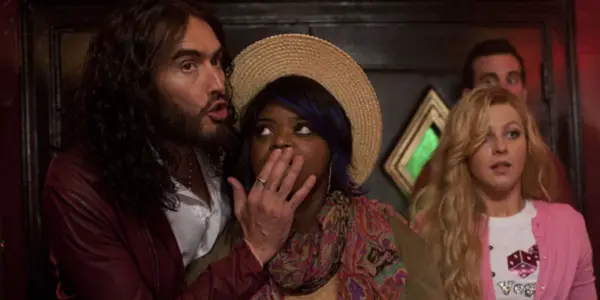PARADISE: Unfortunately, It’s Anything But

Lee Jutton has directed short films starring a killer toaster,…
Diablo Cody’s ultra-quirky, pop culture reference-laden screenwriting generally elicits either raves or rants – it’s hard to feel utterly indifferent about it. I loved Jennifer’s Body, the blood-drenched feminist horror-comedy starring Megan Fox as a demonically possessed teenage girl who goes around killing the male classmates who lust after her; Cody’s super-stylized writing style felt ideally suited to the zany, Heathers-meets-Carrie premise.
However, for me the Oscar-winning Juno fell utterly flat; everyone in the film felt like an over-caffeinated caricature dying to prove how clever they were, as opposed to a real person you might actually meet in a high school hallway. In Jennifer’s Body, the same thing was true, but at least it made sense in the context of the film, which lives at the opposite end of the reality spectrum from Juno.
Paradise was released in 2013 and marked Cody’s directorial debut, yet I had no idea the film existed until I saw it listed among the films currently available to stream on Sundance Now. Julianne Hough of Dancing with the Stars fame stars as a sheltered girl from a hyper-religious small town in Montana who experiences the opposite of a spiritual awakening after her body is burnt to a crisp in a plane crash. The premise sounded like it had the potential to be the perfect vehicle for Cody’s unique worldview – intellectual but unwilling to judge others, hilarious but surprisingly heartwarming.
Unfortunately, it seems that Paradise was completely swept under the rug for a reason. Cliche-ridden and cartoonish in the worst way possible, it’s the opposite of Hollywood heaven.
A Walk On The Wild Side
Lamb Mannerheim (Hough) suffered extreme burns after a tragic incident in a small plane being piloted by her fiance, who died in the crash. Conveniently, the painful burns that cover her arms, legs and back (forcing her to wear surgical hose over the extensive skin grafts used to repair her body) spared her angelic face and her waist-length blonde hair.
Invited to church to share the experience of how her faith “saved her”, Lamb shocks everyone when she instead declares that as a result of the accident, she no longer believes in God. Armed with the millions of dollars she received in settlement money after her family sued over the crash, she heads to Vegas to experience the “worldly pleasures” she has been denied so far in her life: drinking, gambling, sex, you name it.

Upon arriving in Vegas, Lamb befriends a flirtatious British bartender named William (Russell Brand) and a cynical singer named Loray (Octavia Spencer). When not working in the bar, Loray is working towards a bachelor’s degree in film; this degree appears only to have been chosen so that Cody would have an excuse for Loray to explain the Magical Negro trope to an unwitting Lamb. (They talked about it in class, don’t you know.)
Yet just because Paradise is self-aware of its use of the trope – a black character who seems to exist only to help a white character improve their life via words of wisdom and, occasionally, mystical powers – doesn’t absolve the film of guilt from using it. If anything, it makes it more offensive, as though Cody is trying to reassure us that it’s okay for her to write a Magical Negro into her film just because she’s aware that she’s doing it.

Indeed, Loray does function in this way for Lamb, albeit in a less saintly way than is often typical of the trope. She takes Lamb out on the town for a night of partying, exposing her to every sin the Las Vegas Strip has to offer (spoiler alert: it’s a lot). But hedonism ends up being less fun than Lamb expected, and she suffers yet another existential crisis before the night is over.
Obviously, the moral of the story is to realize that what makes other people happy – whether that be churchgoing or bar-hopping – doesn’t necessarily need to be what makes you happy; you need to find your own path to contentment, no matter what others think. Fortunately, it only takes Lamb about 80 minutes to arrive at that conclusion.
Paradise Lost
The plot of Paradise is reminiscent of an after-school special but with dialogue that is trying way too hard to be edgy. The combination has a sour aftertaste, especially when we’re forced to hear the Oscar-winning Spencer engage in exchanges like this one:
Lamb: “I’m not a showgirl.”
Loray: “Nobody cares what you are, hon.”
Lamb: “I care very much. I care about the message that I send out into the world. Besides, I could never do that anyway, people would stare. My skin.”
Loray: “Yeah, well I got a skin condition too. It’s called black.”
Hough tries hard, but she’s forced to spout too much borderline offensive dialogue for the sake of laughs about how close-minded her upbringing has been, and she sounds uncomfortable doing it. If Paradise had abandoned Lamb’s story in favor of an unlikely buddy comedy about William and Loray’s adventures in Vegas, it would have been a much more enjoyable movie.
Both Brand and Spencer manage to make the film’s cringeworthy dialogue almost palatable, thanks to Brand’s zany demeanor (you expect a guy with his manic energy to spout the nonsense Cody has written for him) and Spencer’s incredible talent and presence. The two of them have a bubbly chemistry that could have be heart of a different, better film.

The backstories of how William and Loray ended up in Vegas are barely touched upon, which is a shame, especially in regards to Loray; she is supposed to have a sister in her Florida hometown who she essentially raised herself but hasn’t seen in years because there are things in Florida she “doesn’t want to face.” What are these things? Just how intense are they to have made her so reluctant to return to Florida? Apparently it doesn’t matter. After all, as we have been informed by Cody, Loray is just Lamb’s Magical Negro.
Paradise: Conclusion
Heavy-handed, predictable and often offensive in its treatment of certain characters, Paradise is a major misfire for Cody.
What do you think? Are you a fan of Cody’s writing? Share your thoughts in the comments below.
Paradise is currently available to stream on Sundance Now.
Does content like this matter to you?
Become a Member and support film journalism. Unlock access to all of Film Inquiry`s great articles. Join a community of like-minded readers who are passionate about cinema - get access to our private members Network, give back to independent filmmakers, and more.
Lee Jutton has directed short films starring a killer toaster, a killer Christmas tree, and a not-killer leopard. Her writing has appeared in publications such as Film School Rejects, Bitch: A Feminist Response to Pop Culture, Bitch Flicks, TV Fanatic, and Just Press Play. When not watching, making, or writing about films, she can usually be found on Twitter obsessing over soccer, BTS, and her cat.













